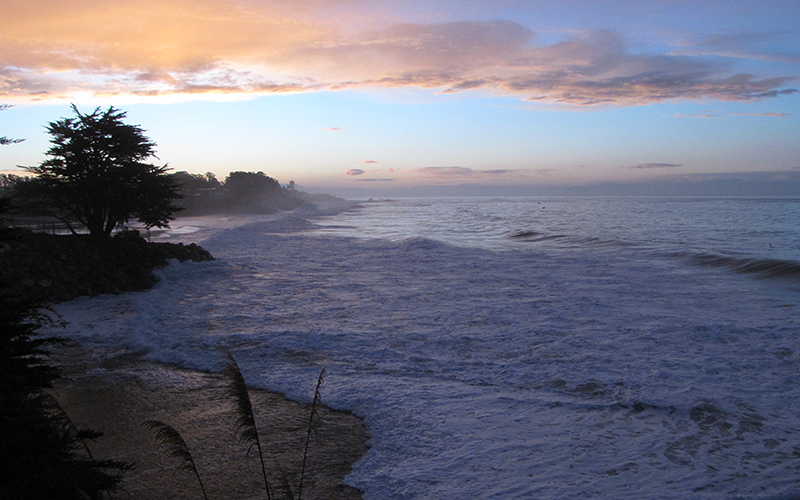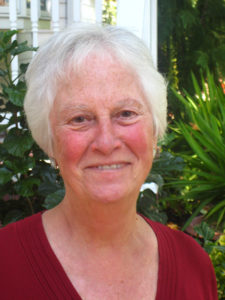- All
- Wisdom
- We Stand on Their Shoulders
- Vocation
- Uncategorized
- Stories Seldom Heard
- Spirituality
- Social Justice
- Prayer
- Peace
- Oneness
- Love
- Letting Go
- Lent
- Joy
- Inspirational Images
- Hope / Healing
- Holy Week
- Gratefulness
- God's Presence
- General News Stories
- Forgiveness
- Finding God
- Faith
- Easter
- Dominican Saints
- Discipleship
- Courage
- Christmas
- Catholic Sisters Week
- Care of the Earth
- Blessing
- Beauty
- Advent
- #justiceOPportunity
God the Gardener

Stories Seldom Heard
241st Edition
 August 1, 2019
August 1, 2019
Welcome to “Stories Seldom Heard”. I would like to especially welcome the Dominican Sisters of Blauvelt, New York.
Four years ago, in 2015, Pope Francis published Laudato Si: on Care of Our Common Home. This is the first encyclical that has focused on the environment even though many of Pope John Paul II’s writings have called us to “ecological conversion.” The United States Catholic Bishops’ website (USCCB.org) under the topic of “Environment,” as well as, many other organizations, have developed and posted on the Internet study guides for the encyclical. There are programs in schools, universities, parishes and retreat centers that encourage us to study Laudato Si. Each of us is asked to read and participate in the discussions concerning the healing and protection of our environment. “Leaving an inhabitable planet for future generations is, first and foremost, up to us. This issue is one which dramatically affects us, for it has to do with the ultimate meaning of our earthly sojourn” (1).
Our present study of science and environmental issues affect not only the way we view the world and our responsibility for caring for it, but also the way we relate to God. Creation reveals the God in whom we believe. It is intimately related with our image of and relationship to God. “The heavens tell the story of God’s glory”: Psalm 19 shouts God’s handiwork. Saints and theologians have sung the praises of our Creator God throughout the centuries. The beauty, extravagance, complexity and unfolding mystery of creation stretches our imaginations, befuddles and delights us.
This appreciation for the wonder, diversity and the blessedness of all creation can never start too early. The discussions and explorations of our faith need to begin when children are very young. It is essential to help our children understand that we live on a common planet, intimately connected with one another. Understanding that everything is connected is a life-long process. So how might we help younger generations to appreciate, protect and share the resources of our common, God-given home? One of my brothers gave me a suggestion. He says, “One of the best parts about being a grandfather is that I have an excuse to watch children’s creative animated films and read beautifully written and illustrated children’s books.” Good advice. Not only to use these occasions for enjoyment, but also to teach our grandchildren, nieces, nephews and young friends about God and the sacredness of all creation.
Recently, a friend of mine gave me a children’s book to read: Big Mamma Makes the World. Big Mamma is an imaginative metaphor for God. It is written by Phyllis Root and illustrated by Helen Oxenbury (2). I thoroughly enjoyed it! Root offers a creative interpretation of the creation story and the illustrations that Helen Oxenbury pens for each day of creation are charming. The days of creation are more or less divided as they are in the Book of Genesis. But Big Mamma punctuates each day with a slightly different phrase than the one we find in the first book of the Bible. God says, or rather I should say, Big Mamma says: “That’s good. That’s real good!”
Big Mamma looks blue and silver in the reflection of the night stars. She is green in the apple and pear orchard as she relaxes in a summer hammock. She is shades of black, yellow, white and brown as the days fade into the sinking sun or rising sun in the morning’s first light. And each day “is good. It is real good.” There are many ways we can imagine God. Big Mamma is just one of them and she does it so well. If ever there were a portrayal of a loving, generous and gracious God, Big Mamma is it!
We first meet Big Mamma in a vast vault filled with vitality and life – more life and energy than anyone, but God, could imagine. It is a huge garden created to sustain life in all its forms and to encourage new life. It is also a place of beauty and harmony. Even God has to stop to admire it. On the seventh day God rests. Like a tired man or woman who has worked in the garden all day, hoeing, weeding and planting, God rests from God’s labor of love. And God names this world, “Good – Very Good.”
The Creator and Gardener God, is celebrated throughout scripture. We hear in the psalms that God “holds the mountains up…calms the clamor of the ocean…visits the earth and waters it” (Psalm 65). God drenches the furrows, levels the ridges and softens the soil with showers. God readies the seeds, prepares the grains and tills the soil to harvest the wheat. What a wonderful rich image of our Creator-Gardener God! I wonder what would happen if we truly thought of this world as being God’s garden, God’s work of art? I wonder if we saw ourselves as guests in God’s garden if we would treat our earth differently? Would we cherish it and be more careful with its precious and limited resources?
Laudato Si has some pertinent questions that help us counter “the seed-bed of collective selfishness” that we sometimes encounter in our present world. “The gravity of the ecological crisis demands that we all look to the common good, embark on a path of dialogue which demands patience, self-discipline and generosity, always keeping in mind that realities are greater than ideas” (3). “No system can completely suppress our openness to what is good, true, and beautiful, or our God-given ability to respond to God’s grace at work deep in our hearts” (4).
God knows the world needs tending. In Isaiah (28:25) God becomes the master teacher – or the Big Mamma farmer who invites and teaches us the discipline of farming. God instructs the plowman how to plow the fields, turn the soil and harrow it. God teaches the farmers how to level the field, scatter the fennel, sow the cumin, put in the wheat and barley. God plants the fennel, rosemary and cumin, but teaches us to store the grain for bread and the grapes for wine.
The image of a Gardener God is an ancient metaphor. We might not like gardening. We might find it a drag, too hard or uninteresting. But this garden we call earth, the world, the cosmos, is in crisis and needs tending. The ecological conversion that Pope Francis calls us to is both personal and communal. It requires a spirit of generous care and tenderness. “It entails gratitude and gratuitousness, a recognition that the world is God’s loving gift and that we are called quietly to imitate God’s generosity in self-sacrifice and good works….As believers we do not look at the world from without, but from within, conscious of the bonds with which the Father has linked us to all beings” (5).
Laudato Si places before us a great challenge. It was proclaimed on May 24, the Feast of Pentecost. How appropriate for it is only by grace and the power of the Holy Spirit that we believers and nonbelievers will be able to meet this crisis with love and justice. Each of us must find our own practical response to the Pope’s call to ecological conversion. A good way to begin might be to listen to a younger person’s concerns about their and the earth’s future. Recently, Archbishop McElroy of San Diego stressed the importance of empowering young people. He names them “the prophetic voice of environmental justice in our nation who are capable of opening the minds of their elders to the damage being inflicted by climate change on future generations” (6).
Footnotes
- Pope Francis, Encyclical Letter Laudato Si (May24, 2015), 160.
- Big Mamma Makes the World, Phyllis Root, Candlewick Press, Cambridge Massachusetts, 2003.
- Pope Francis, Encyclical Letter Laudato Si (May24, 2015), 201.
- Pope Francis, Encyclical Letter Laudato Si (May24, 2015), 205.
- Pope Francis, Encyclical Letter Laudato Si (May24, 2015), 220.
- Brian Roewe, “National Catholic Reporter,” July 26-August 8, 2019.
“Stories Seldom Heard” is a monthly article written by Sister Patricia Bruno, O.P. Sister is a Dominican Sister of San Rafael, California. This service is offered to the Christian community to enrich one’s personal and spiritual life. The articles can be used for individual or group reflection.
Special thanks to Mary Ellen Green, and Maria Hetherton who have helped in editing this article.
